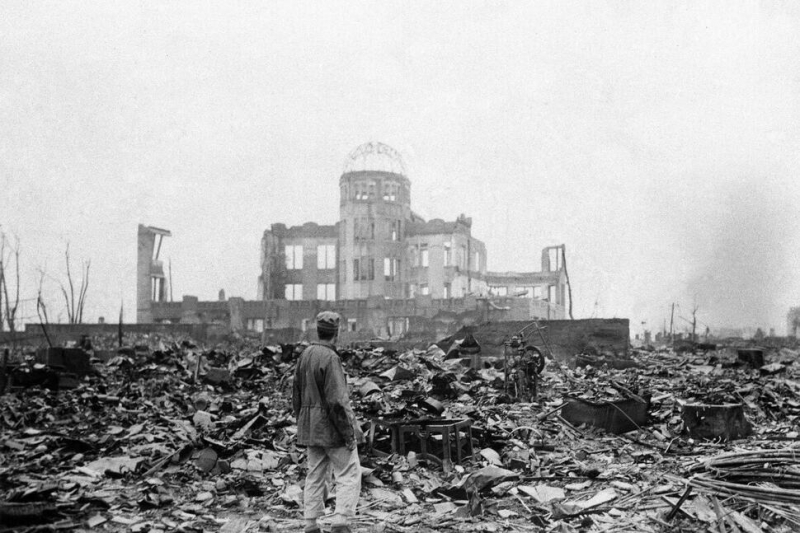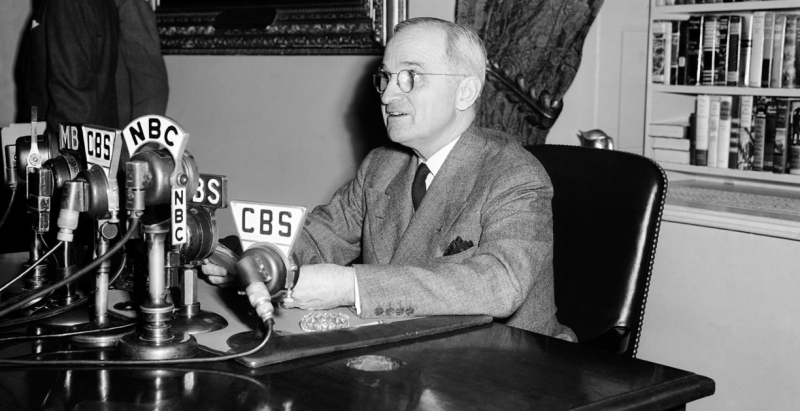He learned of the atomic bomb minutes after being sworn in
Harry Truman unexpectedly became president after Franklin Roosevelt passed away on April 12, 1945, and he had no idea that he would soon have to make a choice that would alter the course of history. When it came to efforts to put the war quickly to an end, Roosevelt primarily kept Truman in the dark. Truman was approached by Secretary of War Henry Stimson shortly after taking the oath of office and informed of a project that had enormous destructive potential. Later, Stimson informed him that the "most horrible weapon ever known in human history" was likely nearing completion in the United States. President Truman ushered in the nuclear era less than four months later by directing the dropping of atomic bombs on the Japanese cities of Hiroshima and Nagasaki, which may have resulted in the deaths of up to 150,000 people.
Truman never showed remorse for the first and only occasion nuclear weapons were used in a war. He claimed that bringing about Japan's quick capitulation and the end of World War II avoided an Allied invasion of Japan that would have resulted in an even more terrifying death toll. The choice didn't seem to trouble him much, and he subsequently admitted to his sister that he "made the only decision I ever knew how to make." "It was the wrong choice. But I succeeded, "Truman emailed Mary, his sister. And I succeeded in saving 250,000 American lads, and I'd succeed again in a similar situation.
In the seven decades since Truman's choice, the world has had its fair share of nuclear dread, from Cold War conflicts like the Cuban Missile Crisis to contemporary worries about terrorists obtaining nuclear weapons. Some historians during that time criticized Truman, claiming that there were better means to get Japan to surrender. This is one of the interesting facts about Harry S. Truman.












